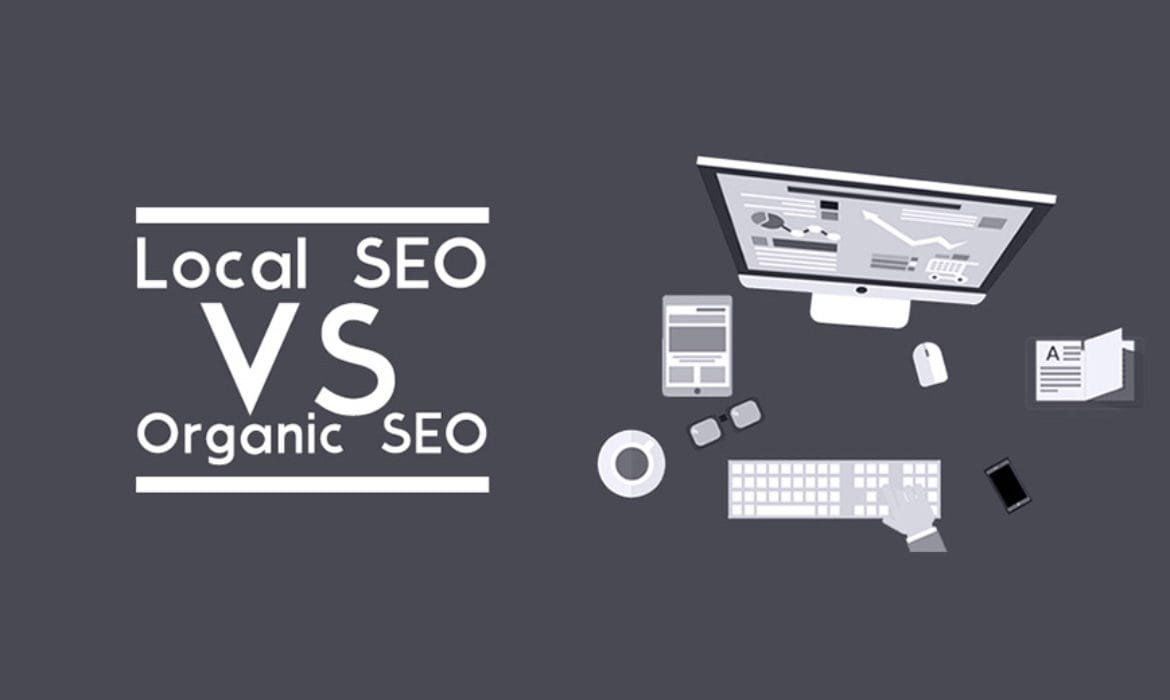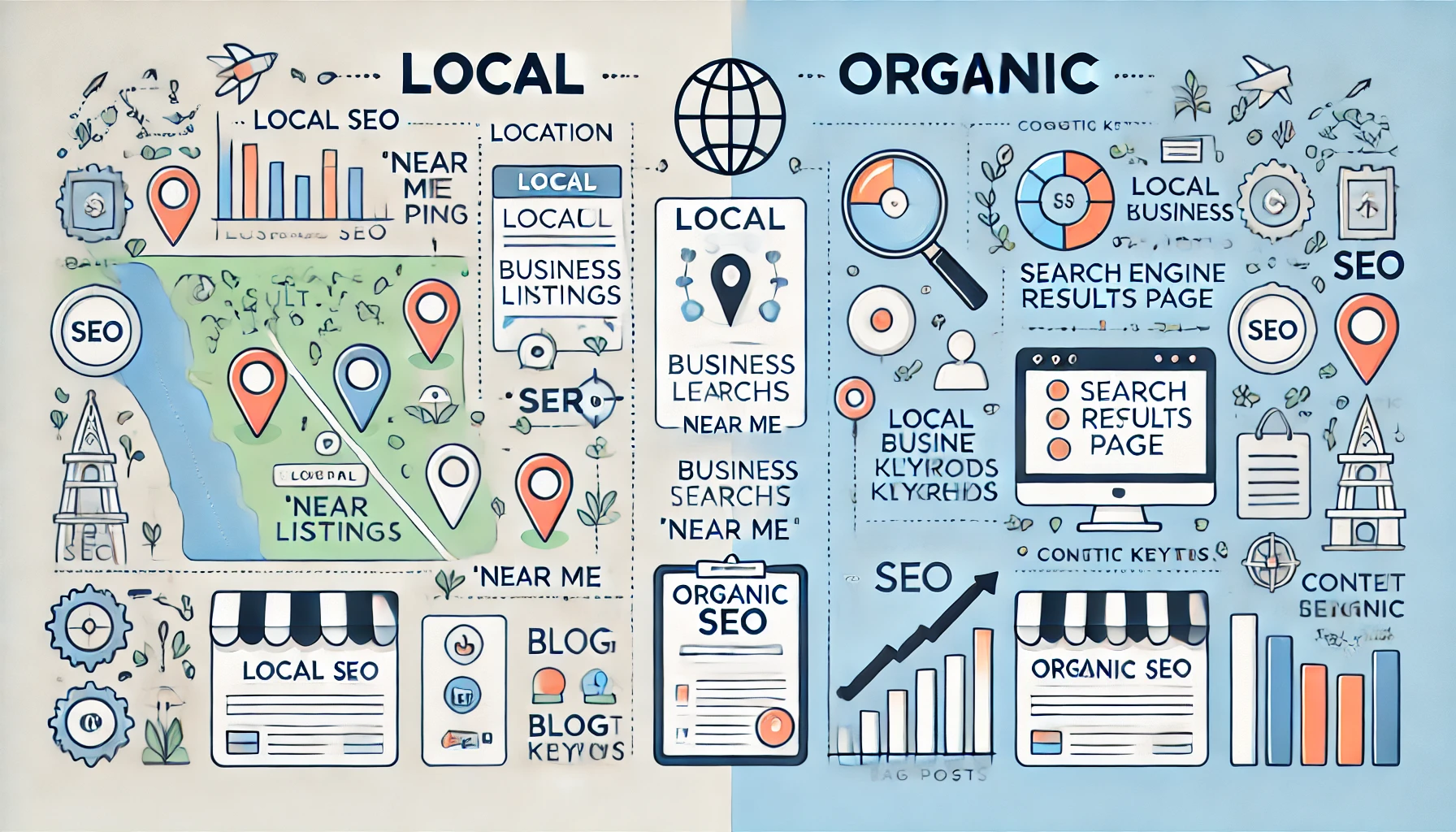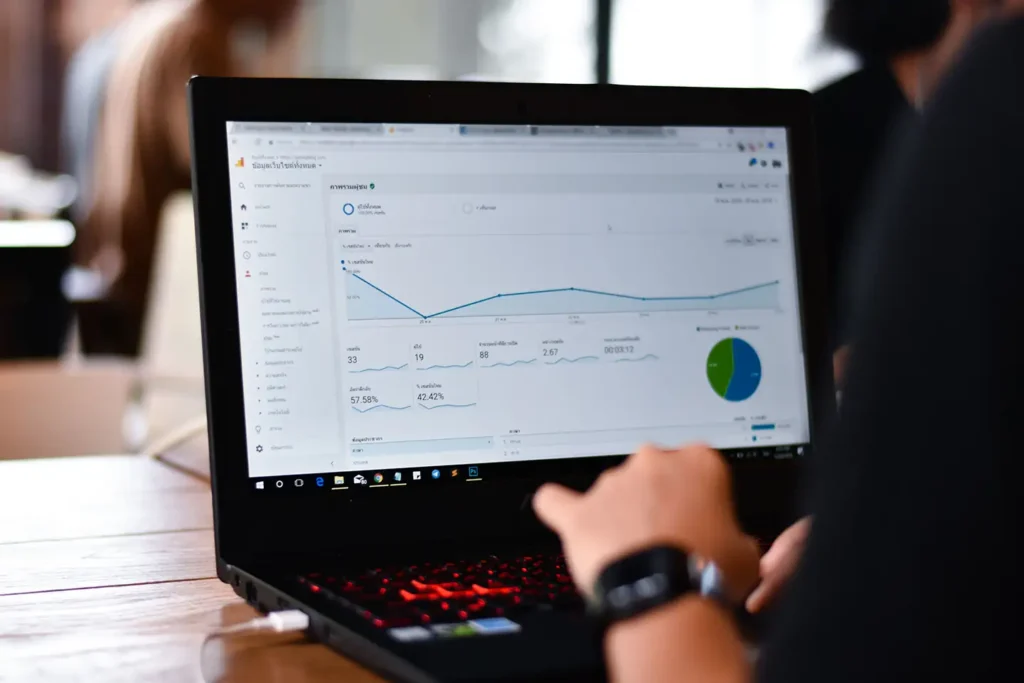Search Engine Optimization (SEO) is a digital marketing practice focused on improving a website’s visibility on search engine results pages (SERPs) through strategic enhancements to content, structure, and links. SEO is a methodical approach to driving organic (non-paid) traffic by boosting a website’s rankings for relevant keywords and phrases. When a website ranks higher on search engines like Google or Bing, it is more likely to attract visitors interested in what it offers, whether products, services, or information.

The Proven Benefits of Comprehensive SEO Strategies
SEO is vital for businesses in reaching the right audience at the right time. A well-executed SEO strategy improves online visibility, directing quality traffic to a website and increasing the chance of conversions. As more consumers turn to search engines to find solutions, products, and services, SEO becomes an indispensable tool for businesses looking to grow their presence, compete effectively, and drive meaningful web traffic.
Local SEO vs. Organic SEO Overview
Local SEO and Organic SEO are two primary types of SEO strategies, each with its unique objectives and techniques. Local SEO targets a specific geographic audience, making it ideal for businesses looking to attract customers within a defined area. This strategy is especially beneficial for companies with physical storefronts or services catering to a nearby clientele.

Organic SEO, however, has a broader scope. It focuses on optimizing a website for search engines to capture a more general audience, regardless of location, and generate consistent organic traffic. Understanding these distinctions is crucial for businesses when designing a strategy aligned with their growth goals.
What is Local SEO?
Local SEO is an SEO approach that helps businesses connect with customers in their vicinity. This strategy leverages local keywords, business listings, and location-specific information to target users searching for services or products “near me.” By optimizing for local search queries, businesses can increase their visibility for searches that indicate local intent—such as “coffee shop in Seattle” or “plumber near me.”

Local SEO is essential for businesses with physical locations, such as stores, restaurants, and clinics, as it helps them stand out in their area. This optimization can drive foot traffic by appearing in search results on Google Maps, in the “Local Pack” (the top three results on a local search), and other local listings. The focus on geographic relevance makes Local SEO a critical component for attracting in-person visits and cultivating a solid customer base within a community.
Core Elements of Local SEO
Local Keywords
Targeting keywords with local intent is fundamental in Local SEO. These keywords include location-based phrases such as “dentist in Chicago” or “bookstore near me,” which signal to search engines that a user is looking for nearby services. Optimizing web content for these keywords enhances the likelihood of reaching local audiences actively searching for specific services.
Google Business Profile
A Google Business Profile (formerly Google My Business) is crucial for Local SEO. Setting up and optimizing this profile allows businesses to display essential details, such as address, hours, phone number, and photos, directly on Google search results. Having a complete, accurate Google Business Profile helps companies to appear in Google’s Local Pack, where users can find them easily.
Local Citations
Building citations—mentions of a business’s name, address, and phone number (NAP) on directories likeYelp, TripAdvisor, and Apple Maps—acts as a trust signal to search engines. These citations contribute to higher search rankings for local businesses by validating the business’s presence and reputation within the area.
Online Reviews
Positive reviews not only build customer trust but also significantly impact local search rankings. Search engines consider the quantity and quality of reviews as a measure of a business’s reliability and relevance to local users. Encouraging customers to leave honest feedback on Google, Yelp, and other platforms is beneficial for boosting both reputation and Local SEO performance.
What is Organic SEO?
Organic SEO is a long-term strategy aimed at improving a website’s visibility in search engine results to attract a broad audience, regardless of location. Unlike Local SEO, which prioritizes geographic relevance, Organic SEO focuses on optimizing content, keywords, and backlinks to appeal to national or even international visitors. This approach is critical for businesses that operate online, such as e-commerce stores, blogs, and service providers targeting a global market.
Organic SEO is ideal for businesses that don’t rely on foot traffic and want to reach as many potential customers as possible. Through high-quality content, keyword optimization, and link-building efforts, Organic SEO drives consistent, targeted web traffic that can boost brand awareness, engagement, and conversion rates over time. Because organic traffic comes from users genuinely interested in a product or service, Organic SEO can provide sustainable growth without the limitations of paid advertising.
Core Elements of Organic SEO
Keyword Research
Keyword research is foundational to Organic SEO. It involves identifying high-traffic, relevant keywords that match the audience’s search intent, enabling businesses to attract potential customers through common queries. Choosing effective keywords can drive targeted traffic, making it more likely to engage users and increase conversions.
Content Optimization
Content is the core of Organic SEO, and optimizing it for selected keywords is essential. This means strategically placing primary keywords in titles, headers, and throughout the body of the content to align with what users search for. Valuable, informative content that satisfies user intent can help a page rank higher on SERPs.
On-Page SEO
On-page SEO encompasses technical adjustments to enhance a webpage’s search-friendliness. Key components include optimized title tags, meta descriptions, header tags, and internal links. These elements help search engines better understand a webpage’s content and relevance, which is crucial for higher rankings.
Backlink Building
Backlinks—links from external sites to a webpage—are critical in Organic SEO because they signal authority and credibility to search engines. High-quality backlinks from reputable sources act as “votes of confidence” for a site, helping it rank higher for competitive keywords. Effective link-building strategies, such as guest blogging and partnerships, strengthen a site’s authority and drive organic traffic.
Comparing Local SEO and Organic SEO: When to Use Each?
Choosing between Local SEO and Organic SEO depends on the type of audience a business aims to attract. Local SEO is highly effective for brick-and-mortar stores or businesses that serve a local clientele, such as restaurants, dental clinics, or home services. By focusing on local keywords and listings, these businesses can increase visibility within a targeted geographic area and attract more foot traffic or local leads.

Organic SEO, on the other hand, is best suited for companies aiming for a broader reach, such as e-commerce platforms, blogs, or national service providers. These businesses benefit from general keyword optimization and content that appeals to a wide audience, helping them gain visibility across regions.
Some businesses may need a hybrid approach. For instance, a local retailer with an online store can leverage Local SEO to attract nearby customers while using Organic SEO to reach online shoppers nationwide.
SEO Strategies for Both Local and Organic SEO
Keyword Strategy
A well-rounded SEO approach requires using both local and general keywords based on the business’s target goals. For Local SEO, keywords should reflect specific geographic areas, like “plumber in Austin” or “Italian restaurant near me.” These terms increase the likelihood of reaching users who are nearby and ready to act. For Organic SEO, general keywords related to the business’s offerings, like “home workout tips” or “best laptops for students,” broaden reach to a larger audience regardless of location.
Content Creation
Creating high-quality, relevant content is essential for both Local and Organic SEO. For Local SEO, content should address local needs, such as neighborhood-specific guides or event updates. For Organic SEO, broader content like blog articles, how-to guides, and product descriptions help attract a diverse audience. Consistent, informative content tailored to audience intent helps boost engagement, attract backlinks, and improve rankings.
Technical Optimization
Technical SEO is vital for both Local and Organic SEO. Key optimizations include fast site speed, mobile-friendliness, and structured data, such as schema markup. A fast, responsive website enhances user experience, while structured data helps search engines display accurate information in results, like hours and location for Local SEO or product details for Organic SEO. Together, these technical efforts create a solid foundation for visibility in both local and organic search results.
Role of Content in SEO
High-quality content plays a pivotal role in any SEO strategy by engaging visitors and satisfying search intent. For Local SEO, content tailored to nearby audiences—such as location-specific landing pages, blog posts on local events, or neighborhood-focused FAQs—helps businesses connect with potential customers in their area. Such content aligns with local keywords, increasing relevance for users searching with a local focus.
For Organic SEO, creating valuable content across broader topics helps capture a wide range of search queries, improving authority and visibility. Blogging, service pages, and FAQ sections not only educate and inform users but also allow search engines to index fresh, keyword-rich content. This builds credibility, attracts backlinks, and boosts rankings over time. Ultimately, content that is informative, relevant, and tailored to the audience’s intent strengthens SEO efforts, both locally and globally.
Building a Strong Online Presence
A robust online presence is critical for effective SEO, helping businesses reach and engage audiences across multiple platforms. A company’s website is the central element, optimized for relevant keywords, user experience, and mobile accessibility. Additionally, a complete and regularly updated Google Business Profile strengthens Local SEO, allowing local customers to find accurate business information directly in search results or on Google Maps.
For Local SEO, maintaining profiles on local platforms such as Yelp, TripAdvisor, and Apple Maps reinforces visibility in local search results, reaching customers who rely on these sites for reviews and recommendations.
Meanwhile, social media profiles on Facebook, Instagram, and LinkedIn support Organic SEO by extending reach and building brand awareness. Together, these efforts enhance a business’s credibility and trustworthiness, creating multiple pathways for potential customers to discover, interact with, and engage with the brand online.



